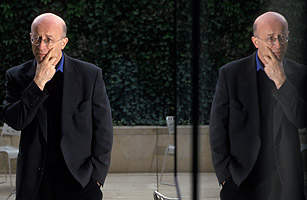
Tony Judt, who died Aug. 6 at 62, was a historian of the very first order, a public intellectual of an old-fashioned kind and a very brave man.
A professor at New York University and the director of the Remarque Institute on European studies there, Judt for the past two years had been living with the degenerative motor-neuron condition Lou Gehrig's disease and wrote movingly of the impact it had on his body. Thankfully and remarkably, he continued writing throughout his battle with the illness with a verve and feeling that added color to what had always been an astonishing breadth of intellectual understanding.
Judt was born to a Jewish family in England in 1948 and spent time on a kibbutz in Israel — volunteering as a driver in the Six-Day War of 1967 — before going up to Cambridge. Though his interests ranged widely (dip into any Judt book or article and you'll find a familiarity with the literature and learning of a variety of different cultures and languages), it was Judt's own time and place that most fascinated him. His masterwork, Postwar, a monumental history of Europe from 1945 on, is the definitive account of how a ruined and divided continent became the largest region of widely dispersed peace and prosperity in the world.
Judt had no stars in his eyes about Europe; he knew too much about its dark modern history for that. But he evinced something like pride that Europe had escaped the ashes of war, fascism and communism. "Neither America nor China had a serviceable model to propose for universal emulation," he wrote at the end of Postwar, looking to the future. "Few would have predicted it 60 years before, but the 21st century might yet belong to Europe."
In person, Judt had a warmth and a wryness of touch that was tremendously engaging. By all those who value scholarship, erudition and argument, he will be sorely missed.
—Michael Elliott
This text originally appeared in the Aug. 23, 2010 issue of TIME Magazine.